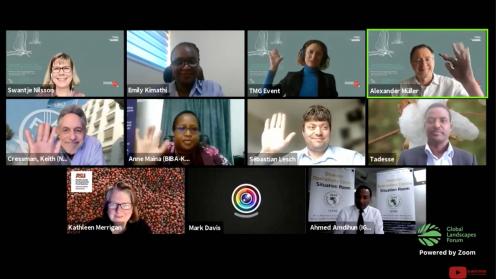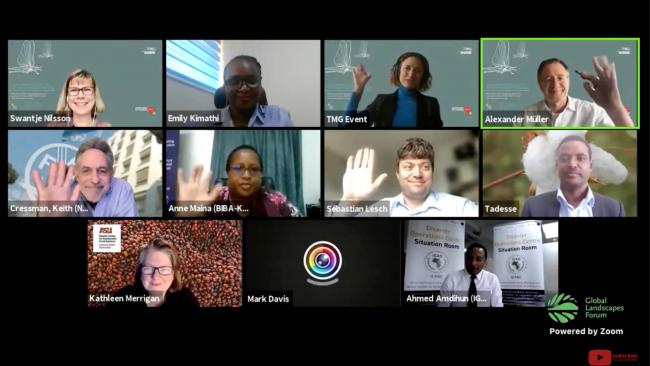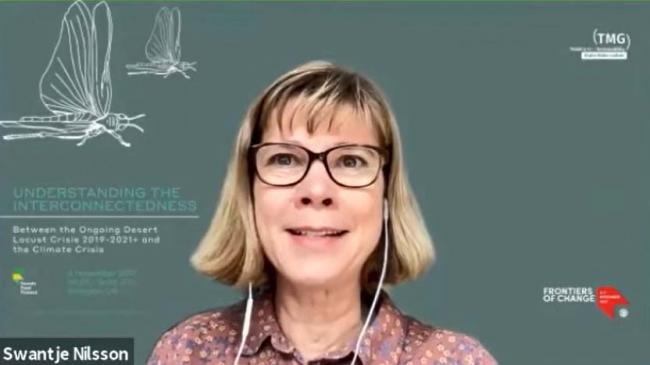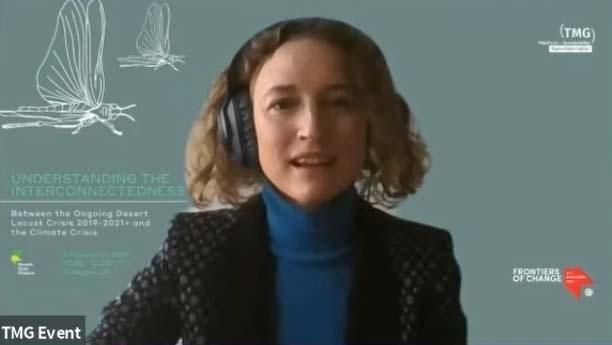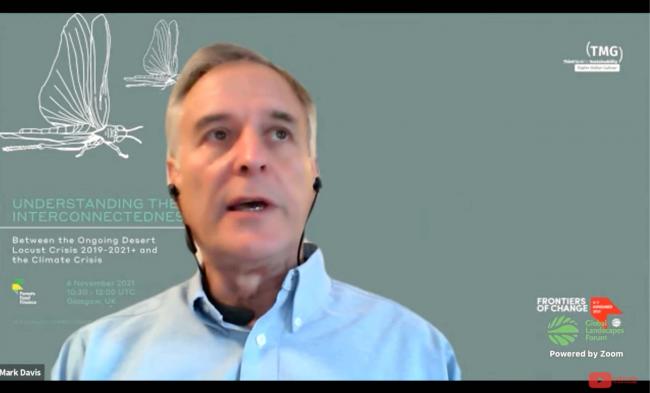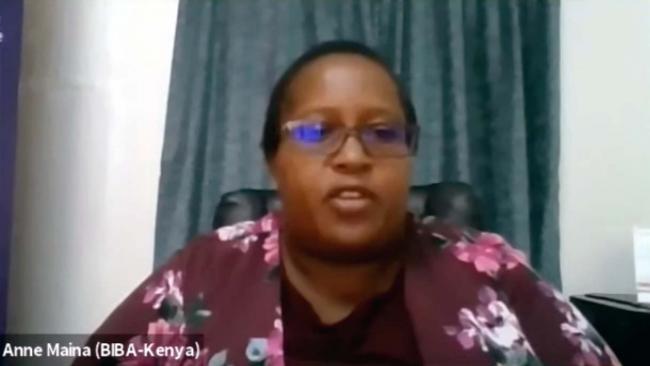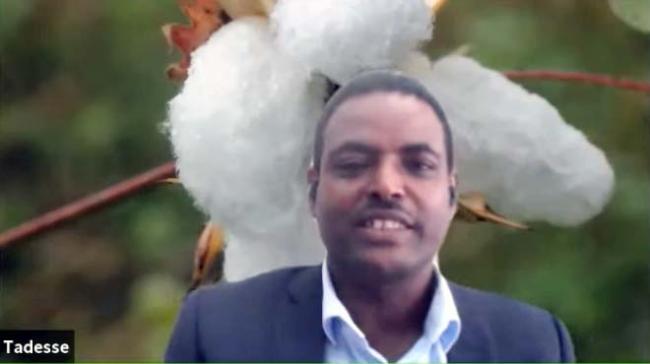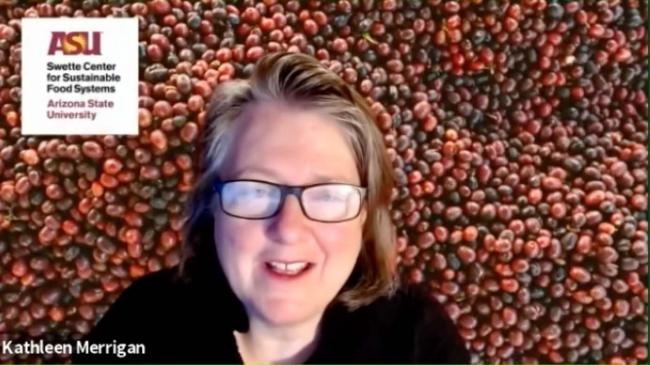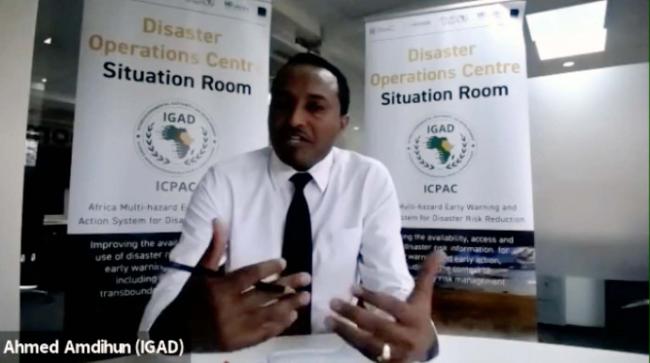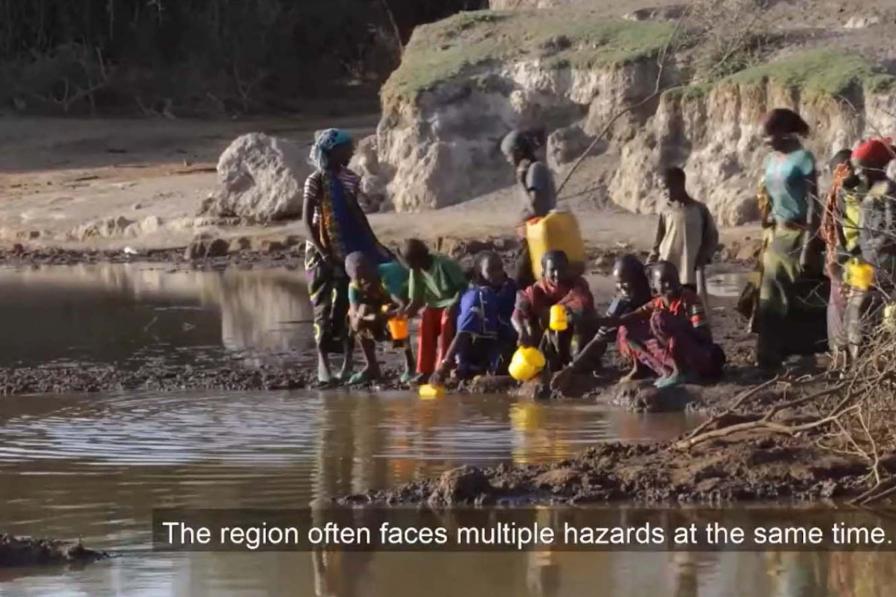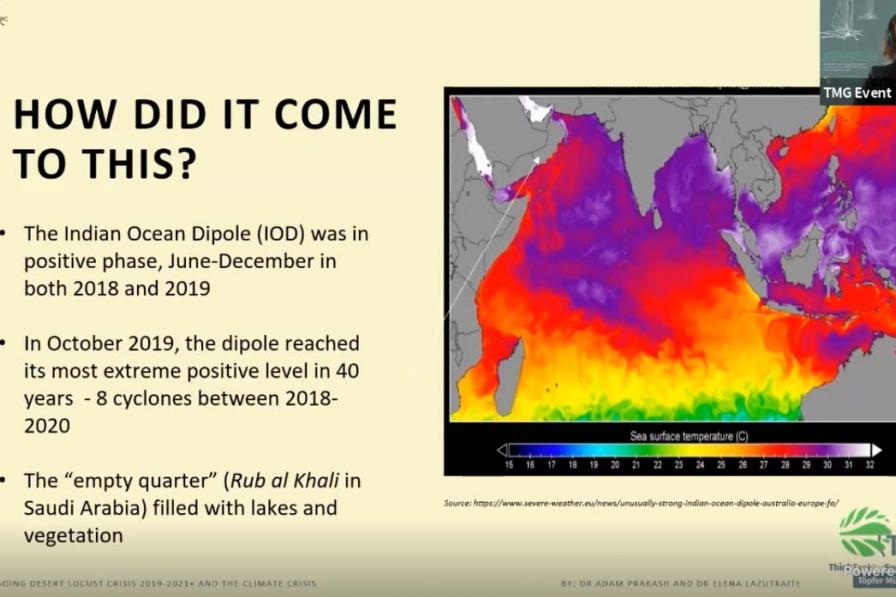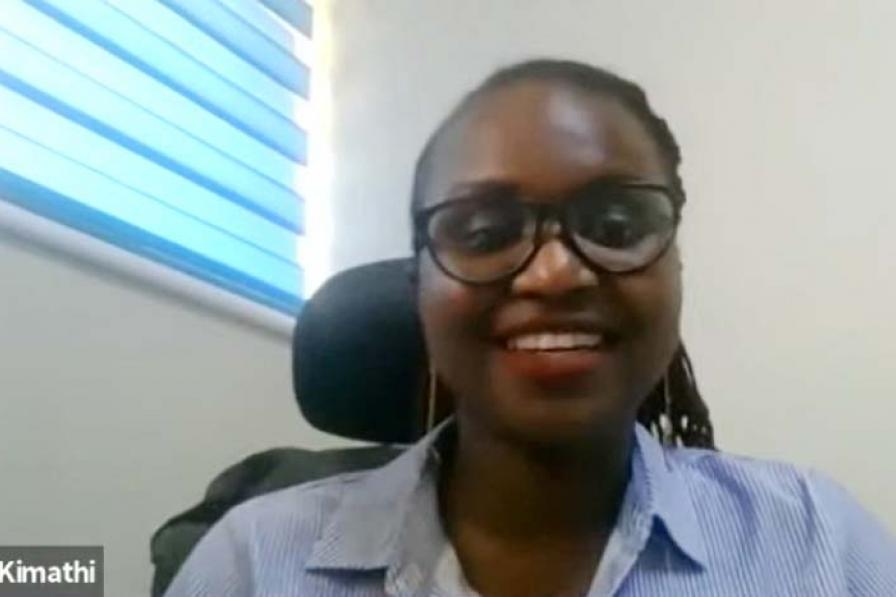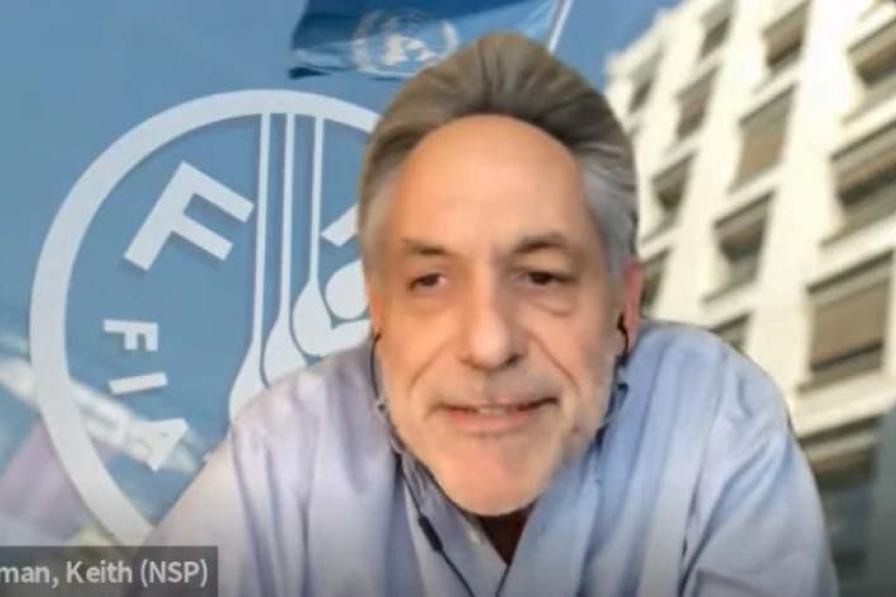Understanding the Interconnectedness Between the Ongoing Desert Locust Crisis 2019-2021+ and the Climate Crisis
The ongoing upsurge in desert locusts poses, as the Food and Agriculture Organization of the UN (FAO) points out, an unprecedented threat to food security and livelihoods, especially in the Horn of Africa, and could lead to further suffering, displacement, and potential conflict. This upsurge and its interconnectedness with the climate crisis were the focus of this event, which resulted in several key messages, including the need for:
- integrating prevention and management of transboundary pests and diseases into climate change adaptation and governance geared towards resilience;
- better and more rapid coordination;
- understanding the true costs associated with the desert locust crisis, including the negative impacts to the environment and human health caused by the use of toxic pesticides; and
- an innovative early warning system and the development of effective biocontrol options for the benefit of small holders, vulnerable people, and the environment.
This event was co-organized by TMG Think Tank for Sustainability (TMG), the German Federal Ministry of Economic Cooperation and Development (BMZ), the Intergovernmental Authority on Development (IGAD), and the Swette Center for Sustainable Food Systems at Arizona State University, US. The event was part of Global Landscapes Forum Climate Hybrid Conference.
Moderator Swantje Nilsson, TMG, introduced the session, stressing the interconnectedness between the desert locust crisis and climate change, and the need for governance geared towards resilience.
Elena Lazutkaite and Adam Prakash, TMG, presented on the characteristics of desert locust swarms, their breeding conditions, and climate change as an additional reason for their increased emergence. They outlined key concepts in control, cautioned that some of the pesticides used are considered highly toxic by the Pesticide Action Network, and warned that the status quo is no longer tenable. They called for a paradigm shift, including a well-functioning early warning system, counting the environmental and human costs through True Cost Accounting, and developing an efficient governance model.
Sebastian Lesch, Head of the Agriculture Department, BMZ, noted the desert locust crisis threatens millions of livelihoods as well as regional investments in ensuring food security. He stressed the need to: act faster and in a more coordinated manner; weigh the advantages of a multi-stakeholder approach; and draw overall governance lessons for the agri-food system.
Following a video presentation from FAO on the desert locust crisis in Kenya, Mark Davis, Centre for Pesticide Suicide Prevention, University of Edinburgh, UK, moderated the first panel discussion on prevention efforts in East Africa.
Anne Maina, Biodiversity and Biosafety Association of Kenya, noted that, in 2019, Kenya had its worst locust invasion in 70 years. She stressed that a lack of relevant knowledge, expertise, and training made the problem worse. She highlighted the use and overuse of potentially toxic pesticides that could harm human health and biodiversity, including pollinators and wildlife. She called for supporting collaborative research and participatory mechanisms in decision making.
Emily Kimathi, International Center of Insect Physiology and Ecology (ICIPE), discussed an ecological niche model for the prediction of breeding sites of desert locusts in East Africa. Stressing the success of the model, she highlighted the potential to leverage data, including satellite and weather data, and field observations, for building powerful predictive models. She called for strengthening coordination through information exchange, monitoring, and early warning systems.
Keith Cressman, Senior Locust Forecasting Officer, FAO, drew attention to digital tools already in use, underscoring that “the system is not fail-proof.” He called for developing a robust early warning system and catalyzing the ability for rapid action. He reiterated that the climate crisis means an increasing number of emergencies. Noting no technological silver bullets exist to address the locust crisis, he emphasized the need for solid governance, strengthening regional and national capacities, increasing awareness in local communities, and securing sustainable monitoring and funding.
Tadesse Amera, Co-Chair, International Pollutants Elimination Network (IPEN), focused on the Ethiopian experience, emphasizing the lack of an efficient early warning and monitoring system. He highlighted lack of awareness-raising activities at the community level, and the need to involve farmers and local communities in decision making. He called for consistent financing of monitoring systems and early control mechanisms without using hazardous pesticides.
Following a video by IGAD on disaster resilience, focusing on the desert locust crisis in Kenya, Alexander Müller, Founder and Managing Director, TMG, introduced the second panel discussion. He stressed that the desert locust crisis is not only a local or regional problem, but intrinsically linked to global climate change. Therefore, he said action against pests and diseases need to be integrated in adaptation efforts. He emphasized that the cost of inaction must be weighed against the costs of early warning systems, pointing to the huge costs associated with this outbreak calculated by the World Bank.
Kathleen Merrigan, Executive Director, Swette Center for Sustainable Food Systems at Arizona State University, stressed the need to develop methodologies that reveal the true costs of our actions, including those related to food production or locust prevention. She called for a compelling narrative accompanied by accurate calculations of the true costs of inaction to make a strong case to policymakers. She further called for reconsidering the whole research domain, noting that the biopesticide sector is extremely underfunded, and depends on limited government funding and fails to attract the necessary venture and investment capital due to lack of a business case.
Ahmed Amdihun, Regional Programme Coordinator for Disaster Risk Management, IGAD, focused on the need for a robust risk management mechanism, with guidelines in place and proactive institutions. He underscored the need to change the narrative towards additional investment on anticipation, prevention, and mitigation of disaster. He stressed that collaboration is key for transboundary challenges, calling for participatory actions to build global partnerships.
Contact
Elena Lazutkaite | Elena.Lazutkaite@tmg-thinktank.com
Harry Stopes | Harry.Stopes@tmg-thinktank.com
More Information
To receive free coverage of global environmental events delivered to your inbox, subscribe to the ENB Update newsletter.
